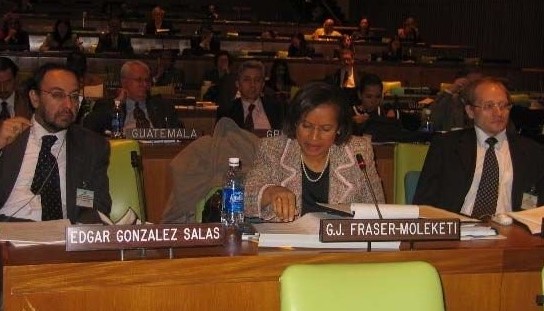The Committee of Experts on Public Administration held its fifth session at the United Nations in New York from 27 to 31 March 2006. Its theme was “Innovations in governance and public administration for the achievement of the internationally agreed development goals, including the MDGs”.
Report
Arabic | Chinese | English | French | Russian | Spanish
Subtopics | Major recommendations/conclusions |
|
Innovations in governance and public administration for the achievement of the IADGs and MDGs | Member States should: - pursue ethically sustainable innovations in line with the rule-of-law and through a strategic perspective while emphasizing the significance of enabling factors such as freedom of thought and expression, an open society and public administrative structures that encourage dialogue among public servants.
- have: (i) the willingness to change and take risks; and (ii) the managerial capacity to lead change and take risks, including the resources needed for such change. In that regard, national human resources development policies towards good governance are essential. It is also important to institutionalize innovation while focusing on how to avoid resistance in the process.
- prepare young professionals to help and sustain innovations in the public sector while working to train all citizens to value democratic processes and innovation.
The Secretariat should facilitate innovations in governance in the United Nations Member States by: - maximizing the use of the United Nations Online Network in Public Administration and Finance (UNPAN) as a repository of innovations in governance;
- strengthen its function as a forum for the exchange of innovations in public administration among countries, particularly through increased focus on the United Nations Public Service Awards;
- conducting analytical research on innovations in governance, and preparing practical case studies useful for replication of innovative ideas;
- documenting and disseminating knowledge on innovations, including the achievements of the winners of the United Nations Public Service Awards; and
- providing leadership capacity-building programmes on innovations.
The Secretariat should also: - focus on good policies and legislation for innovation and on mainstreaming successful knowledge systems as national policy tools;
- examine several key questions in order to better assist Member States in introducing change in the public sector. These questions are: How do new ideas get accepted?; What is involved in the process of innovation?; How to build political coalitions to support and validate the innovation process?; What are the main obstacles that should be addressed?; How can the effectiveness of innovations be assessed?; How can innovations be sustained?; What happens when the leader that initiated the innovation leaves office?;
- analyse the incentives for innovation among Governments and civil servants, and address the issue of innovation in the public sector at the local and national levels and in multilateral organizations;
- devise tools and methods for risk assessment and change management in the public sector, given that all innovation inevitably modifies the status quo of public administration, and thus encounters resistance;
- continue to focus on uncovering the “black box” of the process through which innovations in government come about.
|
|
Searching for a bottom-up approach and methodologies for developing foundations and principles of sound public administration | Member States should strengthen their participatory institutions, opportunities and mechanisms to build citizen trust in government. The Secretariat should: - place its technical advisory facilities at the disposal of Member States, especially those that seek assistance on the design of instruments for monitoring and evaluating participatory processes and their impact on citizens;
- undertake a review of literature, desk and country case studies on obstacles faced and approaches adopted by countries in fostering citizen participation in governance and public administration.
|
 欢迎来到联合国,您的世界!
欢迎来到联合国,您的世界!
